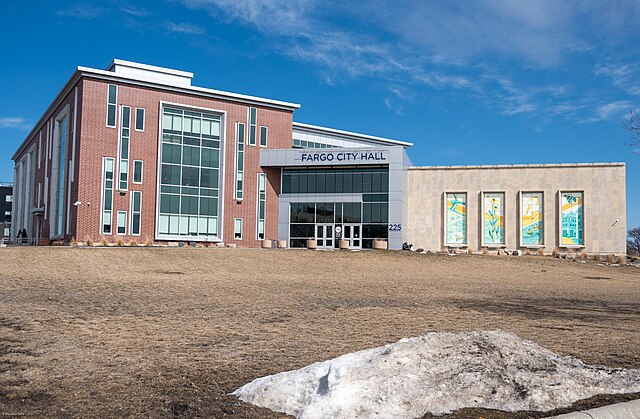The only way to clear downtown Fargo of the unhoused is to provide them housing

This summer has seen quite a bit of discourse regarding what to do about downtown Fargo’s growing homeless population. From police sweeps of encampments to city commission meetings, people have complained of feeling unsafe downtown and local government has scrambled to find a solution.
Unfortunately, though, the solution is something that our local leaders are pretty vehemently opposed to—providing homeless people with housing and money, no strings attached.
In 2020, a charitable organization in Vancouver called Foundations for Social Change published the results of a study in which they gave a lump sum of 7,500 Canadian dollars (about $5,700 USD) to 50 recently homeless people. They followed these 50 people, along with 50 members of a control group who didn’t receive the money, over the next year and found that the group who was given the money found food security and stable housing on average 12 months sooner than the others. Their spending on alcohol, cigarettes and drugs decreased, while their spending on food, clothing and rent increased. (CNN)
Another study published in 2020 by the University of California, San Francisco found that even people with acute medical conditions and chronic homelessness were able to find stable, long-term housing the quickest when given free housing and voluntary access to support services. They partnered with Abode Services, a permanent “supportive housing” program that provided subsidized housing along with free medical and social care, with one worker for every 15 clients. While the Vancouver study selected participants with the lowest possible amounts of reported mental illness and substance abuse, the UCSF study focused on people with the highest incidence of these things—those who had significant disabilities and were in and out of hospitals and prisons the most. This study, however, found that 86% of people housed in the program were successfully housed and remained so for several years. (UCSF)
These studies, along with many others, have shown that providing homeless people with free housing and lump sums of money is not only effective in lowering homelessness long-term and increasing food security and job stability, but also costs less than the current model of jailing or penalizing homeless people. Fargo’s homeless population is growing, but it’s not homeless people’s fault. In our current economy, most of us are three bad months away from experiencing homelessness. The lack of long-term, effective support for homeless people is what is making this crisis worse. Studies have shown the best and cheapest ways to lower the amount of people experiencing homelessness—so why aren’t we doing it?